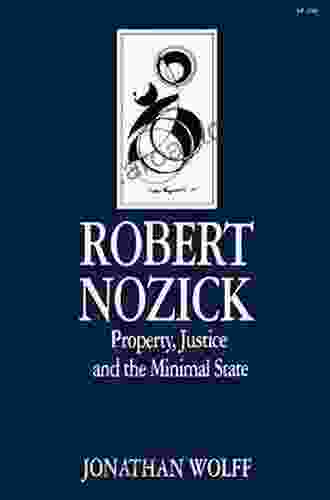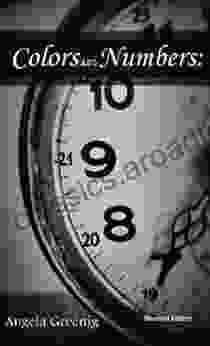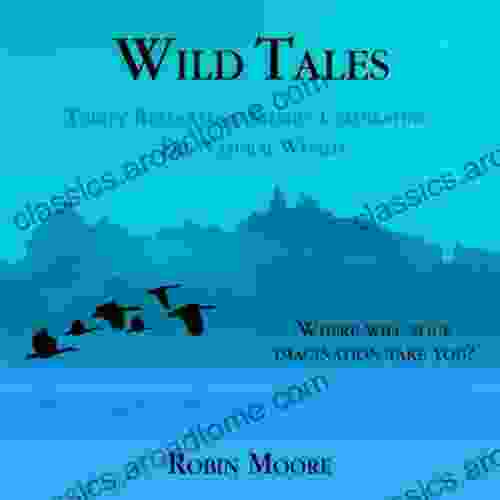Property Justice and the Minimal State: A Modern Guide to Classical Liberalism

Classical liberalism is a political philosophy that emphasizes individual liberty, free markets, and a limited role for government. It is based on the belief that individuals are best equipped to make decisions about their own lives, and that government should only intervene when necessary to protect individual rights.
Classical liberalism has a long and distinguished history, dating back to the Enlightenment. Some of the most famous classical liberals include John Locke, Adam Smith, and Friedrich Hayek. In recent years, classical liberalism has experienced a resurgence in popularity, as people have become increasingly dissatisfied with the size and scope of government.
Property Justice and the Minimal State is a comprehensive and accessible to classical liberalism. The book explores the history of classical liberalism, its key principles, and its contemporary applications. The book is written by a team of leading classical liberal scholars, including David Friedman, Richard Epstein, and Randy Barnett.
4.8 out of 5
| Language | : | English |
| File size | : | 2043 KB |
| Text-to-Speech | : | Enabled |
| Enhanced typesetting | : | Enabled |
| Word Wise | : | Enabled |
| Print length | : | 186 pages |
| Lending | : | Enabled |
| Screen Reader | : | Supported |
The roots of classical liberalism can be traced back to the Enlightenment, a philosophical movement that emphasized reason and individual rights. Enlightenment thinkers such as John Locke and Jean-Jacques Rousseau argued that all individuals are born with certain natural rights, including the right to life, liberty, and property.
These ideas were further developed by classical economists such as Adam Smith and David Ricardo. Smith argued that free markets are the most efficient way to allocate resources, and that government intervention in the economy is generally harmful. Ricardo developed a theory of rent that showed how the value of land is determined by its scarcity.
Classical liberalism reached its peak in the 19th century, when it became the dominant political philosophy in many Western countries. However, the rise of socialism and communism in the 20th century led to a decline in classical liberalism.
In recent years, classical liberalism has experienced a resurgence in popularity. This is due in part to the growing dissatisfaction with the size and scope of government, as well as the increasing awareness of the benefits of free markets.
The key principles of classical liberalism include:
- Individual liberty: Classical liberals believe that individuals are best equipped to make decisions about their own lives. They believe that government should only intervene when necessary to protect individual rights.
- Free markets: Classical liberals believe that free markets are the most efficient way to allocate resources. They believe that government intervention in the economy is generally harmful.
- Limited government: Classical liberals believe that government should play a limited role in society. They believe that government should only provide those services that individuals cannot provide for themselves.
Classical liberalism has a wide range of contemporary applications. Some of the most important include:
- Free trade: Classical liberals believe that free trade is essential for economic prosperity. They argue that tariffs and other trade barriers hurt consumers and businesses.
- Privatization: Classical liberals believe that privatization is a good way to improve the efficiency of government services. They argue that private companies are more efficient than government agencies.
- School choice: Classical liberals believe that parents should have the right to choose where their children go to school. They argue that competition between schools will improve the quality of education.
- Drug legalization: Classical liberals believe that drug prohibition is a failure. They argue that drug legalization would reduce crime and violence.
- Immigration reform: Classical liberals believe that immigration is a good thing for the economy. They argue that immigrants are more likely to start businesses and create jobs than native-born Americans.
Property Justice and the Minimal State is a valuable resource for anyone who wants to learn more about classical liberalism. The book provides a comprehensive and accessible to the history, principles, and contemporary applications of classical liberalism.
Classical liberalism is a political philosophy that has stood the test of time. Its principles of individual liberty, free markets, and limited government are just as relevant today as they were when they were first developed.
4.8 out of 5
| Language | : | English |
| File size | : | 2043 KB |
| Text-to-Speech | : | Enabled |
| Enhanced typesetting | : | Enabled |
| Word Wise | : | Enabled |
| Print length | : | 186 pages |
| Lending | : | Enabled |
| Screen Reader | : | Supported |
Do you want to contribute by writing guest posts on this blog?
Please contact us and send us a resume of previous articles that you have written.
 Book
Book Novel
Novel Page
Page Chapter
Chapter Text
Text Story
Story Genre
Genre Reader
Reader Library
Library Paperback
Paperback E-book
E-book Magazine
Magazine Newspaper
Newspaper Paragraph
Paragraph Sentence
Sentence Bookmark
Bookmark Shelf
Shelf Glossary
Glossary Bibliography
Bibliography Foreword
Foreword Preface
Preface Synopsis
Synopsis Annotation
Annotation Footnote
Footnote Manuscript
Manuscript Scroll
Scroll Codex
Codex Tome
Tome Bestseller
Bestseller Classics
Classics Library card
Library card Narrative
Narrative Biography
Biography Autobiography
Autobiography Memoir
Memoir Reference
Reference Encyclopedia
Encyclopedia Anayat Bukhari
Anayat Bukhari Ann M Galvani
Ann M Galvani Andrew Byrne
Andrew Byrne Ed Southall
Ed Southall Andrey Adamovich
Andrey Adamovich Ana Madureira
Ana Madureira Ann Pietrangelo
Ann Pietrangelo Ankita Singh
Ankita Singh Lauren Marino
Lauren Marino Andrea Devaux
Andrea Devaux Stuart W Harmer
Stuart W Harmer Rene Rubalcava
Rene Rubalcava Andrew Buchan
Andrew Buchan Mark P Jensen
Mark P Jensen Claudia Dale Goldin
Claudia Dale Goldin Andi Rhodes
Andi Rhodes Susan E Lederer
Susan E Lederer Andrew Greenfield Lockhart
Andrew Greenfield Lockhart Bret Thoman
Bret Thoman Andrew Holecek
Andrew Holecek
Light bulbAdvertise smarter! Our strategic ad space ensures maximum exposure. Reserve your spot today!

 Chad PriceApplications of Subsurface Energy and Environmental Problems: A Comprehensive...
Chad PriceApplications of Subsurface Energy and Environmental Problems: A Comprehensive... Gavin MitchellFollow ·8.6k
Gavin MitchellFollow ·8.6k Thomas HardyFollow ·9.8k
Thomas HardyFollow ·9.8k Caleb CarterFollow ·17.5k
Caleb CarterFollow ·17.5k Manuel ButlerFollow ·7.3k
Manuel ButlerFollow ·7.3k Harry HayesFollow ·18k
Harry HayesFollow ·18k Marcel ProustFollow ·16.7k
Marcel ProustFollow ·16.7k Carl WalkerFollow ·14.9k
Carl WalkerFollow ·14.9k Michael ChabonFollow ·9.2k
Michael ChabonFollow ·9.2k
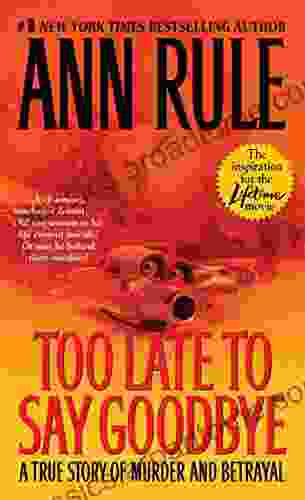
 Braden Ward
Braden WardThe True Story of Murder and Betrayal
In a small town where...
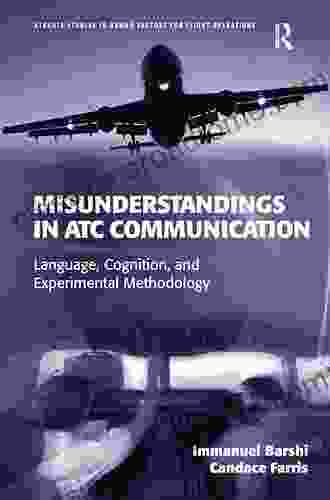
 W. Somerset Maugham
W. Somerset MaughamUnraveling the Complexities of Human Language: A...
Language is a fundamental aspect of human...
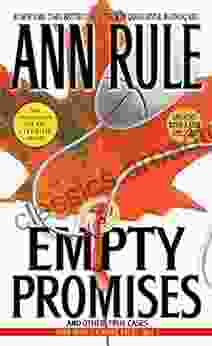
 Ibrahim Blair
Ibrahim BlairTrue Crime Tales That Will Keep You on the Edge of Your...
Prepare to be...
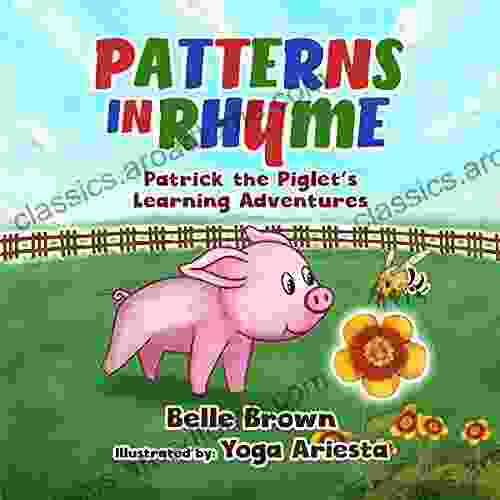
 Rick Nelson
Rick NelsonPatterns In Rhyme: A Journey of Discovery with Patrick...
Welcome to the...
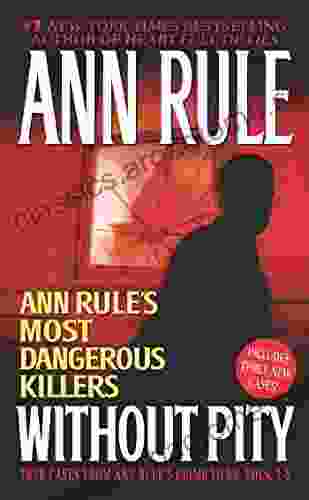
 Edgar Hayes
Edgar HayesWithout Pity: Unmasking the Evil Within
In the realm of true...
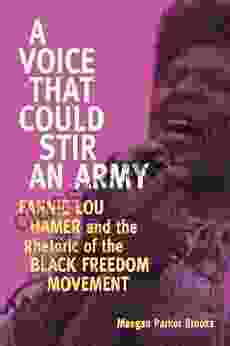
 Cooper Bell
Cooper BellFannie Lou Hamer's Indelible Legacy: Unraveling the...
The Black Freedom Movement, a pivotal...
4.8 out of 5
| Language | : | English |
| File size | : | 2043 KB |
| Text-to-Speech | : | Enabled |
| Enhanced typesetting | : | Enabled |
| Word Wise | : | Enabled |
| Print length | : | 186 pages |
| Lending | : | Enabled |
| Screen Reader | : | Supported |


